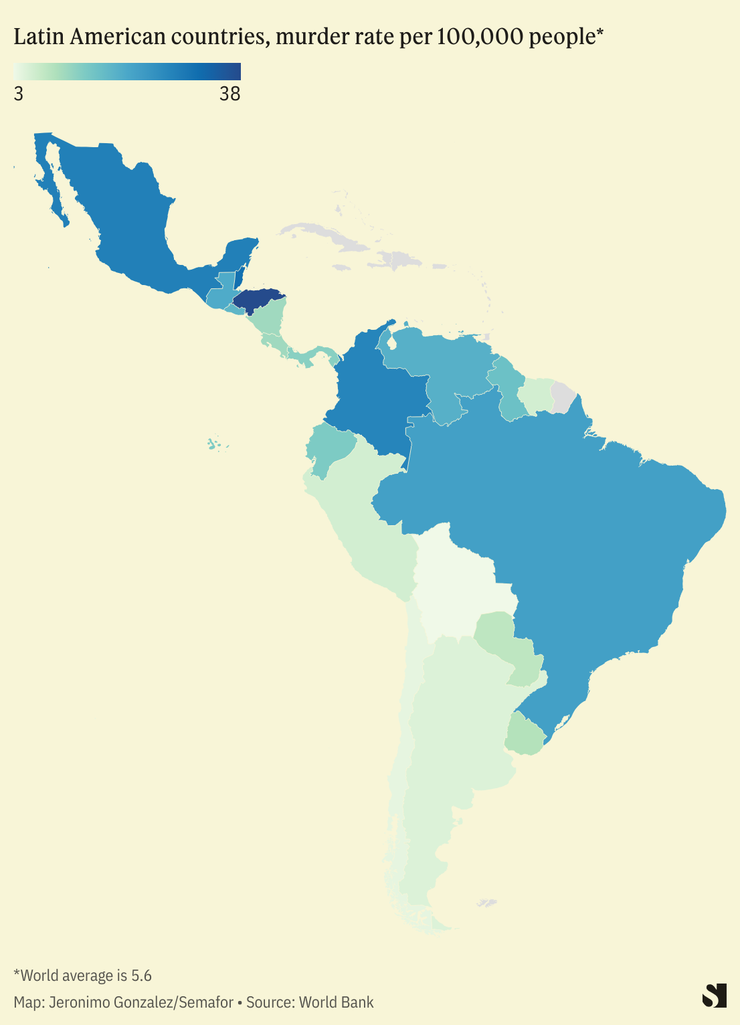The News
Latin America, the most violent region in the world, is embracing militarization as it struggles against violent crime.
This week, ownership of Mexico’s largest airport was transferred to the country’s navy, the latest step in the growing involvement of Mexico’s armed forces in the country’s economy.
Throughout the region, troops are being deployed for a variety of tasks — from policing to building infrastructure — and are often unaccountable in civil tribunals should abuses be committed.
We’ve gathered key reporting and analysis on what this means for Latin America.
Insights
- Once a critic of the military, Mexico’s leftist President Andrés Manuel López Obrador has increasingly relied on them to deliver his agenda. Critics point to the militarization of Mexico’s economy as López Obrador’s principal legacy: During his administration, spending on the armed forces has swelled by more than 70%. “The army has become an entrepreneur,” a political analyst told the Financial Times. “How do you put the toothpaste back in the tube?”
- As crime rises across Latin America, politicians are calling for armies — often seen as less corrupt and more efficient than police forces — to be deployed. Militaristic approaches to public security are a big part of presidential campaigns due this year in Argentina and Ecuador. “The natural consequence will be militaries with greater political and economic influence”, James Bosworth a political analyst focused on Latin America, wrote. — World Politics Review
- Young Latin Americans, many of who have only experienced rampant violence in their communities, are increasingly open to autocrats. El Salvador’s President, Nayib Bukele — whose violent crackdown on gangs has been denounced by rights activists — is the region’s most popular leader. Asked whether a “government with an iron fist” could save their countries’ problems, 46% believed it could. “If Latin America’s remaining liberal leaders fail to improve their citizens’ lives,” The Economist reported, “democratic backsliding is likely to metastasise into a grim regional trend.”
AD


